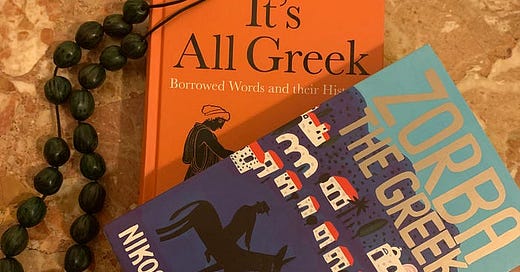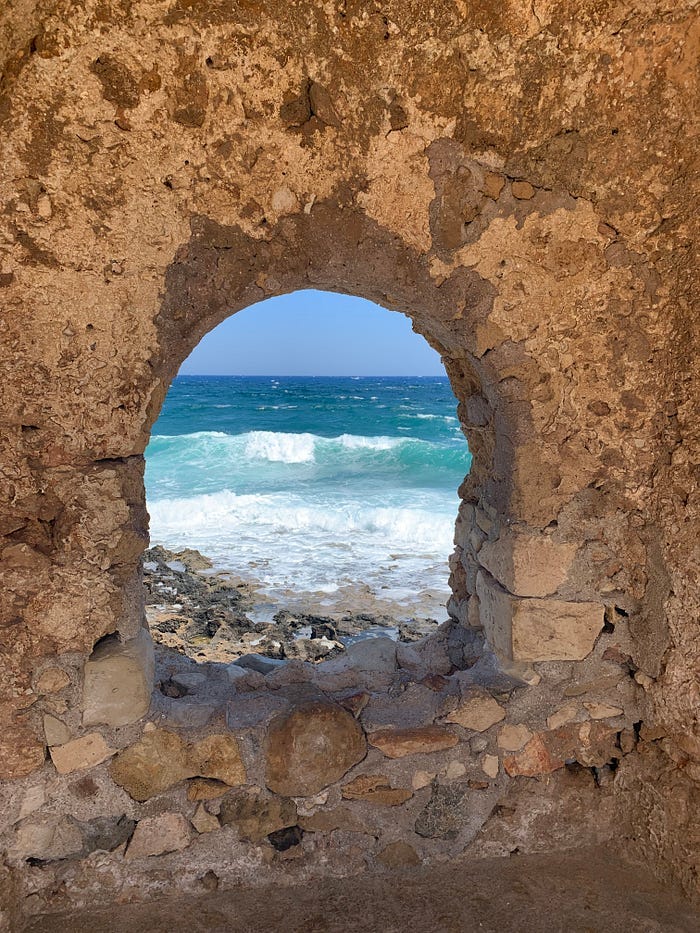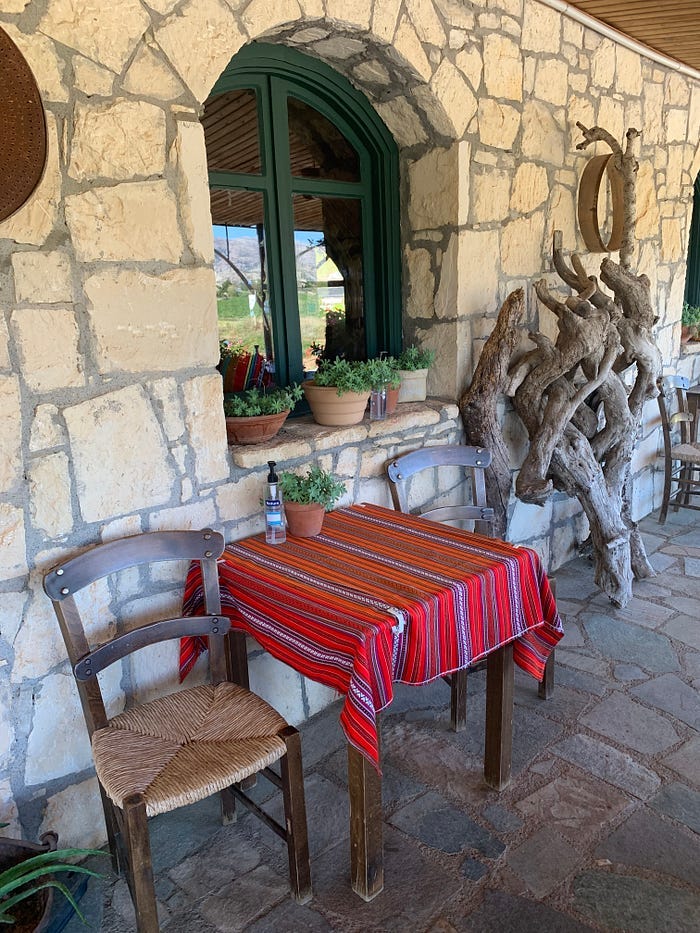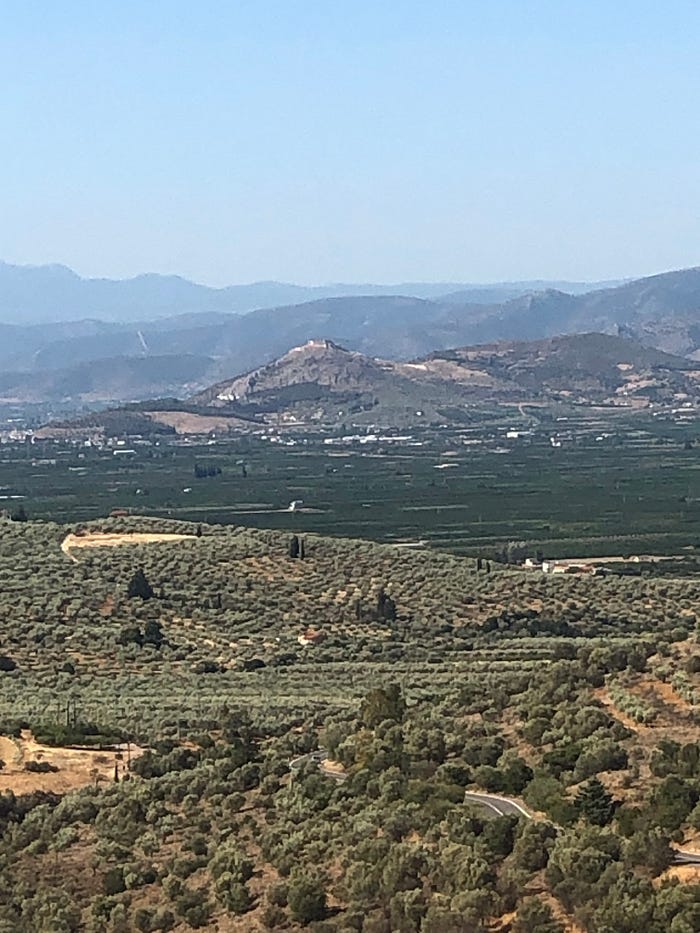Listen Here
Enthusiasm is a wonderful thing. In South America they throw flowers to you. In Greece Greeks throw themselves.
Melina Merkouri
We all came from somewhere. Myself a spiralling tapestry woven in Western Europe and well worn by half of a century of Canadianism. My father is an Anglo-Celtic cornucopia. His valiant pioneering ancestors came to North America in the early 1600s. My mother is a Greek. The immigrant experience was mine to witness, not to travel. I reaped the rewards from the post war collective effervescence of bravery and courage. One person’s will for freedom creating a legacy of existence 8300 km from home. A perilous journey that even caused Odysseus himself to roll in the grave. A Nazi occupation and a civil war behind him my grandfather sailed away far beyond Ithaca leaving war ravaged Greece to start over in Canada. My mother arrived from Greece as a young child a year later.
As one grows older the story in our bones often gets louder. All of my DNA is talking to me. Yet this Greek essence seemed to be talking “with” me. More than just telling me a story, it was sharing one. “We are all Greeks” the English poet Percy Shelley wrote, adding from a Western civilization lens, “Our laws, our literature, our religion, our arts have their root in Greece.” Medicine, architecture, democracy, education, and philosophy can easily be added to that list. The former president of France, Valéry Giscard d’Estaing, sharing less poetically that “Europe without Greece is like a child without a birth certificate.”
The Greeks just seem to happen to us. There is a spirit of Greekness that tends to be contagious. I believe that there are two Greek words that may be able to explain this inspiring Greek vibe. These are, however, far more than mere words. They are qualities of being and awareness. To try to translate these words into English is like kissing your partner through a veil! We often try to create words to describe feelings. The Greeks take feelings and turn them into words.
Among all peoples, the Greeks have dreamt life’s dream most beautifully.
Johann Wolfgang von Goethe
Philotimo
The word philotimo comes from the Greek root words “filos,” meaning friend, and “timi,” meaning honour. The word represents so much more than its straight up linguistic etymology. Philotimo encompasses the melodic themes of pride in self, pride in family, pride in community, hospitality, warmth and doing the right thing. Recently canonized Orthodox Saint Paisios sharing philotimo as, “that deep-seated awareness in the heart that motivates the good that a person does. A philotimos person is one who conceives and enacts eagerly those things good.” This is wrapped up in that selfless virtue of serving the greater good of the world and accepting the personal sacrifices that accompany it.
Greek history is full of examples of philotimo. At the legendary Battle of Thermopylae, the Greeks under Leonidas, the King of the Spartans, were outnumbered 100 to 1, by the invading Persian army. The outcome was ultimately inevitable. Told to lay down their weapons and surrender, Leonidas replied, “Come and take them.” The Greek forces held that pass between mountain and sea for three days fighting to their death. Their philotimo bought the remaining Greek forces extra time to prepare which ultimately allowed the Greeks to overcome the invaders.
More recently in World War Two the Greeks said “No” to the invading Axis forces, refusing to give in to their demands. This small nation embraced their philotimo and stood up for what they believed in. Greek men and women fought back in fierce resistance that started on the mainland and extended to the islands. The resistance cost the Axis powers months, and arguably may have changed the course of the war and history. Winston Churchill famously said that, “Hence, we will not say that Greeks fight like heroes, but that heroes fight like Greeks.”
These examples are not attempts to glorify warfare in itself, but are merely illustrating the Greek virtue of philotimo to selflessly defend the greater good at all costs.
Philotimo is seen in that unflappable resilience of the Greek people. Throughout history after every catastrophic phase, after every setback, Greece managed to survive, recover and even prosper. The Romans may have conquered Greece, but Greek culture conquered Rome. The resilience and adaptability of the Greek people are not to be underestimated. Philotimo. This Greek word that has no one meaning can bring meaning back into all of our lives.
Kefi
Kefi embodies the spirit of joy, passion, euphoria, enthusiasm, and exuberance. It’s that overpowering emotion we have when we completely surrender to the moment, releasing inhibitions, and allowing the frenzy of life to pulse through our body and soul. Presence. Far more than a word, Kefi is the rapture of being alive!
The Persian Sufi poet Jelaleddin Muhammad Balkhi al Rumi, arguably one of the finest and most important Eastern poets, is known in the West simply as Rumi. The Asia Minor city of Konya where he eventually resided was Greek in origin and still had a sizeable Greek population in his time during the 13th century. Heavily infusing himself in the study of the ancient Greek classics, Rumi came to believe passionately in the use of music, poetry and dancing as a path for reaching God. Dancing. Yes, dancing. Whirling. Kefi. Rumi’s Sufi poetry is infused with elements of a Hellenistic Greek culture that had survived into Byzantium.
Not surprisingly sounding like the English word “carefree”, Kefi can be referred to as the art of living. The celebration of the present. We can never control everything that happens to us and around us. We can only control our state of being. Kefi is creating versus reacting in real time. Both words have the same letters but an entirely different state of being. This vibration of joyous bliss is innate in all of us. It is only forgotten, not lost.
In the 1946 classic book, Zorba the Greek, Nikos Kazantzakis introduced us to the kefi of Zorba. Anthony Quinn portrayed Zorba in the 1964 blockbuster film co starring with Mikis Theodorakis’ infectious lively soundtrack.
Alexis Zorba is a middle-aged Greek man who deals with loss, failure and hardship by singing, dancing and laughing. This state of being initially confuses and then exhilarates a younger, conservative British-Greek writer Basil who had relocated back to ancestral property in Crete.
Zorba coaches Basil on what it means to gain a zest for life, and to appreciate even the smallest of pleasures, regardless of the inevitable and unwavering challenges that life brings. Zorba sharing, “You have everything but one thing: madness. A man needs a little madness or else…he never dares cut the rope and be free.” Zorba celebrating “a glass of wine, a roast chestnut, a wretched little brazier, and the sound of the sea.” Zorba famously teaches Basil to dance on the beach to the bouzouki drenched kefi brilliance of Theodorakis’ breath taking instrumental composition aptly named Zorba’s Dance.
Kefi is unleashing that madness. Heartfulness. Presence. Cutting the ropes of the past and the fear of the future to be alive in the present. For the present moment is all that we have. Smashing a few plates and dancing, yes dancing, from our heart and soul. As Basil learned, it’s better to dance than to understand how to dance. Feeling life, rather than trying to always understand it. Greek soul fire. Kefi!
I spent some time in Greece this past summer. It was my first trip back to my roots in 30 years. Robert Frost once said, “Poetry is when an emotion has found its thought and the thought has found words.” I wrote the following poem in pieces as feelings turned to thoughts and thoughts to words. These words found me in the labyrinth of beaches, mountains, olive groves and narrow lanes, of Crete and the Peloponnese. Part of the poem was written synchronistically at Stavros beach on Crete. A good friend had taken us to his favourite beach near Chania. We spent a glorious afternoon wrapped in the intoxicating Aegean and only upon leaving we saw the signs that the amazing beach dance scene in Zorba the Greek was filmed on that very location. Goosebumps!
To the Greeks our very own protective ego is a challenger that we must both outwit and equally enjoy. The Greeks show us how to invite our ego to the table of presence and dance with our authentic soul. Heartfulness and resilience. Philotimo and Kefi. Greekness.
This poem is dedicated in the spirit of philotimo and kefi to the beautiful people of Greece and to the Greek diaspora all over the world. Like all poetry, the words and verses of this poem were written to be spoken out loud. Zorba style! Thanks Papou! Opa.
Hellas
It all started there
Far beyond the pillars of Hercules
In the dusty dry
Balkan hind corner
of the old world
Where the cerebral logos
of the West
entwines with the mysterious pathos
of the East
The crossroads
A place that everybody always wanted
Yet now they have all but forgotten
that celebrated land
Where the mountains made heroes
The soil growing the very fruit
of democracy
The conquerors have always come
to drink her wine
and pillage her sweet honey
Scattering her sons and daughters
onto the boats to everywhere
Yet her spirit they could never
Confiscate
Her will
they could never
Eradicate
She has always remained
Resilient
Buoyantly swimming
in the swirling turquoise
sea of liberty
The new austere invader
this time a currency
A brigand sword of debt
thrust upon her
Not remembering
her sacrifices
Ignoring the battles
she fought for them
under a blazing sun
Onward and upward
she precariously climbs
Precious of presence
Proudly singing her songs
Bathing in independence
Yearning for freedom
Laughing and dancing
Yes dancing
She sings
Celebrating life
and everything
that it brings
© Jamie Millard
Thank you so much for reading.
If you are interested in any further reading on some of the topics mentioned in this essay, I would recommend the following books, authors and poets. The richness of modern Greek literature often goes overlooked in the English world.
Books
“Zorba The Greek”- Nikos Kazantzakis
“Once We Were Here”- Christopher Cosmos
“Gates of Fire”- Steven Pressfield
“Eleni”- Nicholas Gage
“The Island”- Victoria Hislop
Poets
George Seferis
Odysseas Elytis
Constantinos Cavafy
Kiki Dimoula
Yiannis Livadas








Beautiful, beautiful poem! Oh, how I wish I like Basil to find a Zorba who could teach me how to feel and get out of my head. To find that 'Kefi' within me, often hidden by life and...